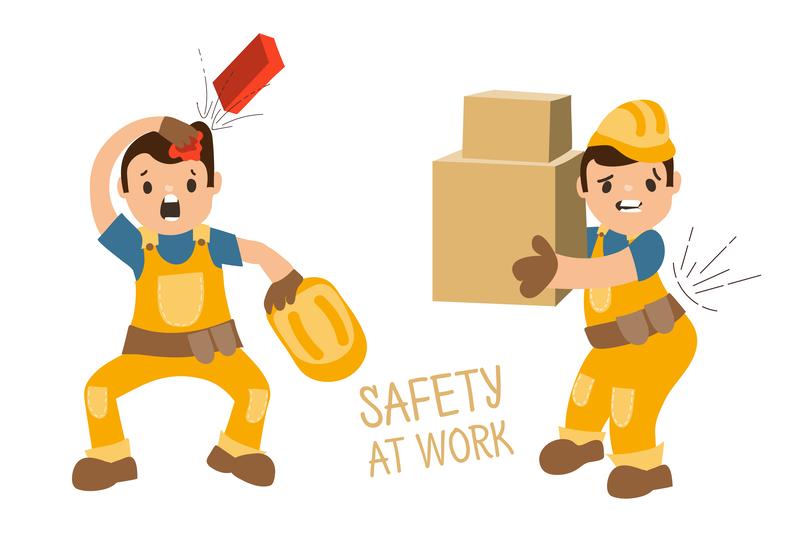Being injured at work not only costs downtime and money for your company, but it can be quite painful and life-altering. According to the U.S. Bureau of Labor, over 900,000 U.S. workers missed work during 2018, and over 5,000 lost their lives in 2017 due to accidents at work. All employees need to be safety conscious for the benefit of everyone.
Physical Concerns
Back injuries, joint sprains and muscle strains are common results of work accidents. Much of this is because of improper lifting and slipping and falling. Many businesses that require their employees to do a lot of heavy lifting to teach them how to do so properly. Follow the program. Lift with your legs and with your back straight. Pull the object close to your body. Get help with heavy and bulky items and ones that are over your head. Even if you think the object is light, always practice proper lifting techniques. If something is on the floor in a walkway, take the time to pick it up. It is not wise to park equipment or stack products in blind spots where people normally walk even for a short period of time. If something spills, block it off and quickly clean it up. Watching out for each other at work will keep injuries to a minimum.
Chemical Hazards
It may not be thought about much, but chemicals are a normal part of everyday life from cleaning supplies to the gas that is put in cars. Some chemicals may only irritate the eyes and skin while others are corrosive and flammable. All chemicals should be treated with respect. Do you use a battery-operated lift truck? The battery contains acid that is both corrosive and explosive. Are you a mechanic? Solvents can cause skin rashes, burn your eyes and harm your internal organs. Are you involved in janitorial work? Some cleaning supplies can be very harsh to the human body. Always follow the guidelines and procedures your company has in place. For your safety, the GHS Pictograms (Globally Harmonized System) should be placed in the chemical storage and usage areas of your company. The chemical labeling system that it explains will help you know the hazards of the chemicals you are using. Learning the system used to label chemical hazards can help avoid potential problems.
Electrical Hazards
Frayed extension cords, faulty wiring and missing outlet covers can all burn or electrocute you. Working on power equipment while it is still plugged in or working on a “live” circuit is very dangerous. It is in your interest to follow lockout/tagout procedures every time you are working on electrical equipment or an electrical system. The extra time involved could save your life.
Equipment in Motion
Most equipment has moving parts. Always make sure guards are in place. Never bypass or deactivate safety switches. Do not perform maintenance on equipment that is still energized. Make sure machinery has come to a complete stop before placing your hand inside. Report any safety issues to management. Horseplay has no place in the work environment.
Many people think that accidents are inevitable and that they always happen to someone else. Neither statement is true. If you practice good safety habits, you can keep both yourself and your workmates from being injured.
Interested in more business tips? Check out our business news section.

